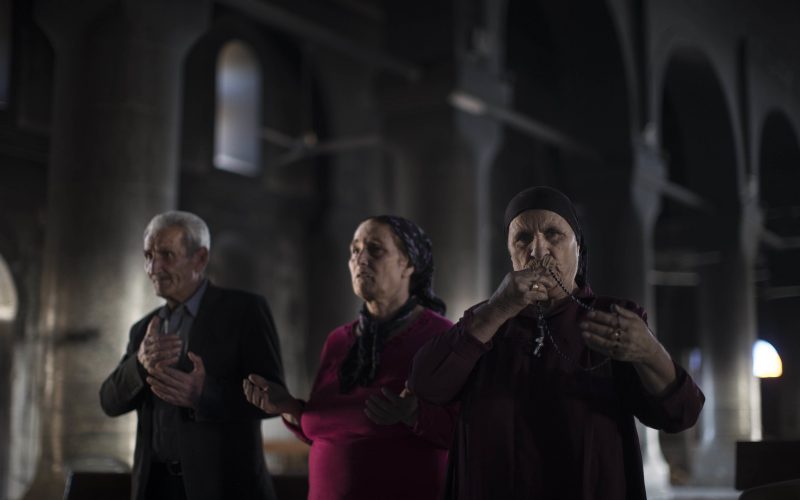US Bishops urged to do more to help persecuted Christians
The bishops were advised to give more attention to attacks on the religious freedom of Christians
Nov 17, 2016

WASHINGTON D.C: A Maronite leader has called on the bishops of the United States to bring wider attention to the persecution of Christians in the Middle East to their parishes and political leaders.
Addressing the autumn general assembly of the US Conference of Catholic Bishops on November 15, the Maronite Bishop Gregory Mansour said he hoped that the new four-year strategic plan adopted by the conference earlier in the day would incorporate a robust advocacy for religious freedom in the rest of the world.
“People do look to America and religious freedom is our greatest freedom and we ought to be able to export it …The more we export it throughout the world, the happier our world will be,” said Bishop Mansour, who heads the Eparchy of St. Maron in Brooklyn, New York.
While referring to the acts of kidnapping, torture and killings by ISIS in Iraq and Syria, Bishop Mansour said that attention must be given to attacks on the religious freedom of Christians throughout the Middle East.
He encouraged the bishops to take several steps to “increase our communion with our brothers and sisters there” including raising funds for the humanitarian work of organisations such as Catholic Relief Services, Aid to the Church in Need, the Catholic Near East Welfare Association and the Knights of Columbus.
He also said the US church could play a major role in developing a plan with Catholic bishops around the world to rebuild churches and restore the livelihoods of Christians in the region.
A third suggestion revolved around the possibility of organising a program in which US parishes match up with parishes to create bonds of unity and solidarity. Such an effort, he said, could be extended to Orthodox, Protestant and other Christian congregations.
Bishop Mansour also called for advocacy with the U.S. Department of State to boost aid for refugees and displaced people who do not find their way to established camps but are taken in by individual families, hospitals and churches.--Catholic Herald







Total Comments:0